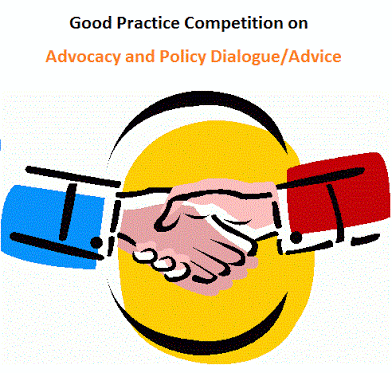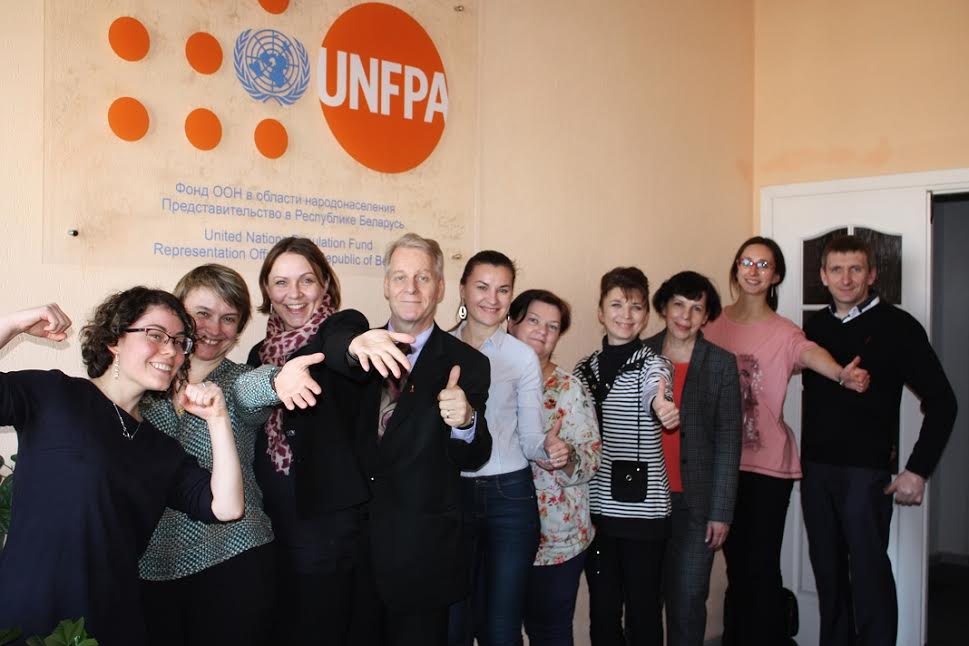
UNFPA in Belarus has been announced a winner of the Good Practice Competition on Advocacy and Policy Dialogue/Advice (A/P) launched by the HQ of the United Nations Population Fund in the category ‘Emerging Practice’. This year's competition attracted the most number of entries. A record 66 good practices were submitted by UNFPA country offices from all over the world. Each one contributed to the organizational learning, strengthened the culture of knowledge sharing, and informed UNFPA guidance document and learning programme on A/P.
Good Practice on Advocacy and Policy Dialogue submitted by Belarus CO, Elena Kasko as Assistant Representative, Caspar Peek as Country Director, was aimed at building sustainable alliances to stop gender-based violence in Belarus. The innovative public diplomacy activitypresented for theselection panel is a well-known to Belarusian public play ‘Seven’ read by state officials, diplomats, UNFPA representatives, journalists, NGO representatives and Belarusian celebrities involved into promoting gender equality and counteracting domestic violence in Belarus.

The Belarus case study documented an exemplary A/P initiative against domestic violence (DV). While it was generally known that this problem was prevalent in the country, the legal framework was limited and a comprehensive response mechanism did not exist. Lack of accurate data inhibited a good understanding of the problem. The government's capacity to respond was not fully developed, illustrated by the fact that the state's social services agency was not providing support to DV survivors and that only two NGOs and one FBO were providing shelter-type of services. Multi-sectoral dialogue of various stakeholders was lacking, much less a mechanism for systematic cooperation. It was in this context that the UNFPA team used a comprehensive A/P approach that included working for a legal framework on DV, organizing a broad strategic alliance, providing accurate and actionable data, and working on shifting attitude towards zero tolerance. It also developed a multi-sectoral referral mechanism, and piloted it to prove its effectiveness. Its use of international best practices to inform what can be done proved to be useful. In addition, sensitizing decision-makers included innovative ways to involve them in public diplomacy activities, such as in a well-regarded stage play about women rights ‘Seven’. As a result of all these actions, the relevant regulations were strengthened, a comprehensive law on domestic violence was drafted, a response mechanism is operating, the capacity of relevant state and non-state institutions was raised, and a sustainable partnership of committed organizations is in place.
Armenia, which also represents Eastern Europe and Central Asia region (EECA), has won in the category ‘Established Practice’ with the practice ‘Adoption of a national plan to address prenatal sex selection’ presented as a virtual textbook on how to do a well-integrated and multi-pronged approach to A/P.

